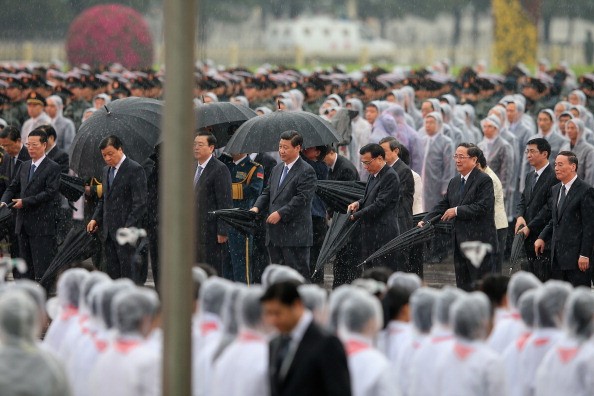China's top leaders have set the plans for the country's growth this year, with stability as a priority while growth goals and economic reforms are second in the agenda, Bloomberg reported.
The top level private meeting, which was held in December, also discussed the cost of the debt-fueled development and plans for long-term expansion, sources were quoted as saying.
The meeting concluded with an order to central and local government officials asking them to prioritize stability in their plans and all other goals, including growth and economic reforms as secondary.
According to the sources, other concerns discussed during the meeting included the potential risk of confrontation with the U.S. under President-elect Donald Trump or with Taiwan. It also included the long-term plan on how to encourage innovation to fuel growth as well as dealing with air pollution.
"China's reaching the point where it has to pick its poison and giving up a half percentage point of growth would be far less politically damaging than instability in the bond or currency markets," David Loevinger, a former China specialist at the U.S. Treasury and now an analyst at fund manager TCW Group Inc. in Los Angeles, told Bloomberg.
"Looking past the Party Congress later in the year, President Xi Jinping may realize that unlike his predecessor, Hu Jintao, he can't kick the can to his successor, even more so if he plans on extending his term beyond 2022," Loevinger noted.
Later this year, five of the seven-member of China's top leadership committee will be replaced at the Communist Party Congress, held twice every 10 years.
About a year ago, the yuan devaluation and the rise in capital outflows have affected global markets and scared off investors, later followed by the yuan plunge, the drop in foreign reserves, and stock market rout.
Although Chinese policymakers were quick to counter these issues, the officials stressed the risk of China causing trouble to the global financial market.
The officials also expressed their apprehension over the country's accumulating debt, warning that some countries went into crises after allowing debt to reach 300 percent of the gross domestic product.
According to Bloomberg Intelligence statistics, China's credit explosion has driven overall debt to 265 percent of its GDP at the end of 2016.
The officials also expressed concern over China falling into the so-called Thucydides trap, a theory by the Greek philosopher, which said that a rising power will clash with an established force.
With the number of economic and political challenges faced by China, some leaders predicted that the yuan may appreciate against the dollar until at least 2020.
"Tapping the brakes may help avoid the economy skidding off the road," Frederic Neumann, co-head of Asian economic research at HSBC Holdings Plc in Hong Kong, said.
"While this may involve giving up on the cherished goal of achieving middle income status by 2020, missing the target by a couple of years is a small price to pay compared to the consequence of financial systemic stress should credit continue to expand at a rapid pace."
During the meeting, the leaders have agreed to be flexible in meeting the target to double the per capita GDP by 2020 and achieve a 6.5 percent growth by the same year.
The leaders expected that this shift would pave the way for China to move from middle-income to high-income economy.
Nobel laureate Michael Spence, a professor at New York University's Stern School of Business, said that only five economies have avoided the middle-income trap while maintaining high growths. These are South Korea, Japan, Taiwan, Hong Kong and Singapore.
Some analysts, however, cautioned China against making the shift but neglecting growth.
"I'd be cautious in claiming this as the nail in the coffin for the growth target," Andrew Polk, head of China research at Medley Global Advisors, said. "There is a big difference between stepping back from an official growth target and abandoning growth-supporting policies altogether."
Zhu Ning, author of "China's Guaranteed Bubble" and deputy director of the National Institute of Financial Research at Tsinghua University, said that China can tolerate slower growth and an expansion of 6 percent to maintain employment.
"China's growth is on a solid enough foundation that the leaders can now turn their attention to reining in financial risks," David Dollar, a senior fellow at the Brookings Institution in Washington and a former U.S. Treasury attache to Beijing, said.
"This is a political year in which it will be difficult to follow through on key structural reforms such as letting zombie state enterprises go bankrupt or opening up more sectors to foreign trade and investment. Tolerating slower growth is accepting reality."



























